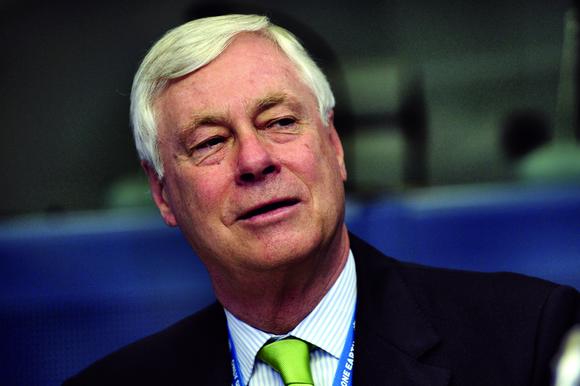Julian Carroll is frequently seen on a podium informing and educating global audiences on key considerations for the future of packaging and the packaging chain, from economic and environmental perspectives.
Simply put, he says: “Good packaging reduces product waste and facilitates centralised processing and distribution of products. Proper packaging assures the availability of safe, hygienic and undamaged goods for people.”
Policy pressure enforces on packaging a long list of standards and criteria to meet and goals to strive for. Is there more to come?
“Packaging is coming back into focus due to an increasing emphasis on sustainability. I currently don’t see a lot of legislation revisions for packaging at European level, but there could be some at national level, simply due to the sector’s visibility. We should do more to explain to policymakers the vital functions of packaging and its contributions to a sustainable society.
“EUROPEN does not subscribe to the notion of ‘sustainable packaging’. What we offer is a vision of how to make packaging more sustainable. It comes down to taking a holistic approach – packaging has to be looked at in the context of the entire product life cycle.”
This starts with responsible sourcing, and being part of a responsible closed-loop recycling system helps put materials in a very good position to achieve ‘reduced overall environmental impact, an economically sustainable approach and clear social benefit’, he says.
Mr Carroll thinks that ‘a very high proportion’ of prevented food waste can be attributed to the benefits of packaging: “Everything that you can do to extend the shelf life of a product is a plus.”
He continues: “Another important point is that less organic waste is produced when food and beverages are packaged centrally. On commercial food processing lines, many of the by-products involved in the process have a commercial value because of their quantity, whereas in the home in small quantities they would be thrown away.” This is a good reason for choosing prepared packaged fruit and vegetables over fresh produce.
He outlines how packaging materials can also contribute to reducing CO2, taking steel as an example.
“CO2 production means energy consumption, and energy is consumed in the manufacture of packaging, in goods transport and in product end-of-life. For steel, the energy required to recycle a steel can into a new steel product is a lot less than making steel from iron ore. The light weight of modern steel containers also helps reduce the amount of CO2 produced in transport. And lastly, in 2008, 71% of steel packaging was recycled in Europe. This represents about 2.6 million tonnes of food and drinks cans and other steel containers being recycled, saving 4 million tonnes of CO2.
A European harmonised deposit system for beverage containers is, again, under scrutiny. How does EUROPEN position itself on the matter?
“Mandatory deposit systems on nonrefillable drinks containers are unnecessary and counter-productive. Evidence shows that in countries where comprehensive packaging recovery systems exist already, mandatory deposits add little to the tonnage of packaging collected. Indeed, the countries with the highest recycling rates do not have mandatory deposit laws.
“Mandatory deposit laws also divert beverage packaging from existing collection systems, and perhaps most seriously, force consumers and industry to deal with two separate waste collection systems. Often that means two car or lorry trips instead of one. The result is more congestion, more fuel consumption and more pollution. Finally, such policies can be considered as barriers to cross-border trade, and thus to the single European market. And producers have to deal with this consequent distortion of competition.”
Within a broad remit, the sustainability agenda and its implications for packaging is the number one issue influencing the work of EUROPEN, says Mr Carroll: “We have already produced Guidelines for Decision Makers on this topic and are now busy with using them in helping prepare the Global Packaging Project for The Consumer Goods Forum. The development of ISO standards for packaging and the environment which we have championed will further support this process. With so many sustainability initiatives popping up locally, regionally and internationally, EUROPEN remains vigilant to ensure that the freedoms of packaging choice and guarantees of free movement of packaged products are not impeded by well intended, but ill thought out public policy, regulation or private sector initiatives.”
With thanks to APEAL for its co-operation in producng this feature.
Julian Carroll, MD, EUROPEN Julian Carroll


